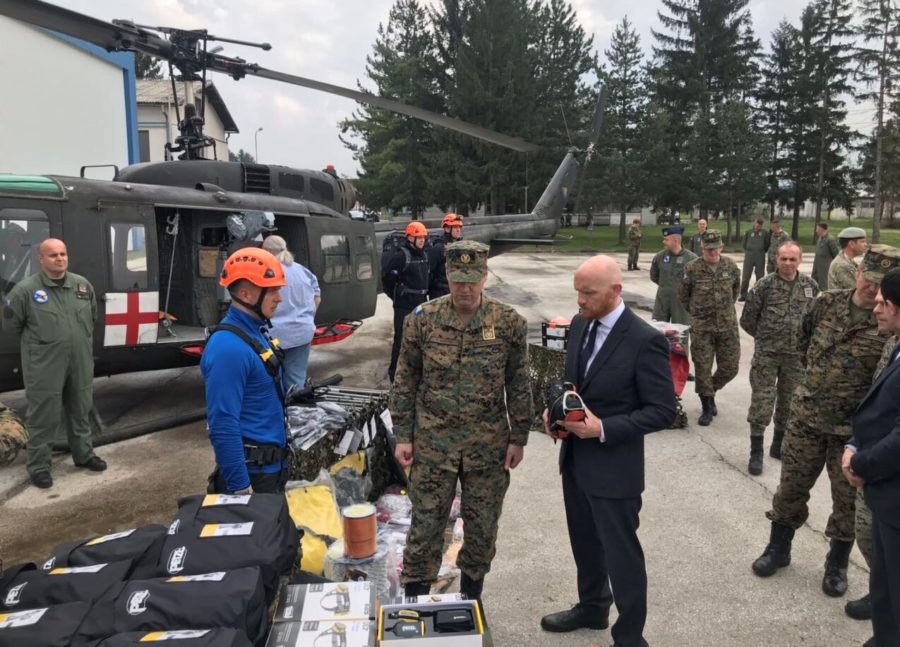22nd March 2021
Partners

No country in the modern world can alone face the many security challenges of today – from climate change to pandemics, transnational crime to cyber-attacks. We all need partners and friends. We all need the chance to improve ourselves through cooperation. That’s what a relationship with NATO offers. And the nature of that relationship is for individual sovereign countries, not outside actors, to decide. Threatening language has no place.
Bosnia and Herzegovina (BiH’s) contact with NATO dates back to the conflict of the 1990s, including the vital role played by alliance troops in maintaining the peace that followed Dayton. As the country took steps forward, and the presence of international forces was reduced, BiH succeeded in establishing its own combined Armed Forces, and the relationship became more of partnership. NATO’s support during the 2014 floods was a great example of cooperation in an hour of need. BiH has now begun to send its own troops, and police officers, to peacekeeping missions around the world, and started to move from being an importer to being an exporter of security.
In nearly three years as UK Ambassador to BiH, I am especially proud of the work we continue to do with the BiH Armed Forces, as partners and friends. I have never met such dedicated and professional individuals, often forced to wrestle with insufficient resources and political obstruction. Visiting representatives of BiH in UK military academies are regular recipients of our highest recognitions for individual excellence. And during this most difficult of years, the UK military has supported their BiH counterparts, including protective gear, medical facilities, training and equipment.
The UK fully supports the mission of General Eric Folkestad, to advise and assist defence and security sector reform, providing UK military staff to his team. With the BiH NATO Commission in place, BiH representatives can decide how best to use the support of General Folkestad and 30 allies. The kind of defence and security sector reforms on offer will make the country better able to respond to security threats and other emergencies, at home and around the world, more in control of its own destiny.
Although spelt out many times before, I will again underline that cooperation with NATO does not prejudge any potential future membership. The door to NATO is open to new members, as seen recently with Montenegro, Albania and North Macedonia. But only BiH can decide whether to come in. Until such a time, implementation of these reforms are an end in themselves, especially the professionalization and streamlining of the BiH Armed Forces. The NATO path is also well served by implementing positive change in areas including the transparency, human rights, corruption, the judiciary, civil society and the environment. Others taking this route have seen economic benefits including greater investor confidence.
Finally, what of British interest in NATO in this region? Last week the UK published its first Integrated Review, setting out its place in the world as we face unprecedented threats and challenges. That vision remains a global one, as a ‘problem-solving and burden-sharing nation’. Within NATO, this will have practical expression, continuing our leading role, “bolstering the Alliance by tackling threats jointly and committing our resources to collective security in the Euro-Atlantic region”. In short, the UK will keep turning up and making a difference, alongside NATO partners, in the Western Balkans and beyond.